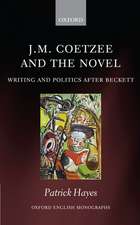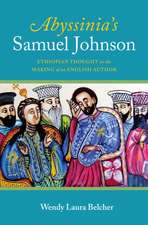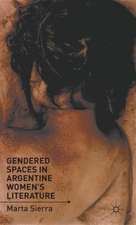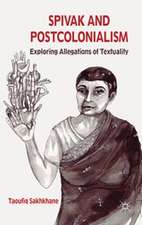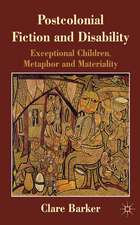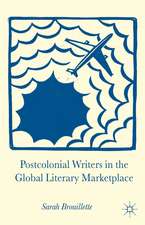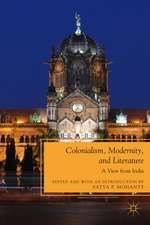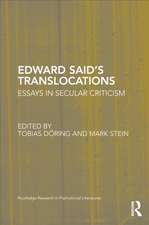The Postcolonial Intellectual: Ngugi wa Thiong’o in Context
Autor Oliver Loveseyen Limba Engleză Hardback – 27 mar 2015
| Toate formatele și edițiile | Preț | Express |
|---|---|---|
| Paperback (1) | 385.47 lei 6-8 săpt. | |
| Taylor & Francis – 12 dec 2019 | 385.47 lei 6-8 săpt. | |
| Hardback (1) | 1005.01 lei 6-8 săpt. | |
| Taylor & Francis – 27 mar 2015 | 1005.01 lei 6-8 săpt. |
Preț: 1005.01 lei
Preț vechi: 1225.61 lei
-18% Nou
Puncte Express: 1508
Preț estimativ în valută:
192.31€ • 209.55$ • 162.05£
192.31€ • 209.55$ • 162.05£
Carte tipărită la comandă
Livrare economică 23 aprilie-07 mai
Preluare comenzi: 021 569.72.76
Specificații
ISBN-13: 9781409409007
ISBN-10: 1409409007
Pagini: 248
Dimensiuni: 156 x 234 x 16 mm
Greutate: 0.59 kg
Ediția:Revised edition
Editura: Taylor & Francis
Colecția Routledge
Locul publicării:Oxford, United Kingdom
ISBN-10: 1409409007
Pagini: 248
Dimensiuni: 156 x 234 x 16 mm
Greutate: 0.59 kg
Ediția:Revised edition
Editura: Taylor & Francis
Colecția Routledge
Locul publicării:Oxford, United Kingdom
Cuprins
Contents: The postcolonial intellectual; The decolonization of James NgÅ©gÄ©: early journalism; Diasporic Pan-Africanism: the Caribbean connection; NgÅ©gÄ©’s ’aesthetics of decolonization’: return to the source; Postcolonial intellectual self-fashioning; The global intellectual: conclusion; Works cited; Index.
Notă biografică
Oliver Lovesey is Associate Professor of English at the University of British Columbia-Okanagan, Canada, editor of Approaches to Teaching the Works of NgÅ©gÄ© wa Thiong’o (2012) and author of NgÅ©gÄ© wa Thiong’o (2000). He is also the editor, most recently, of Victorian Social Activists’ Novels (2011) and author of Postcolonial George Eliot (forthcoming).
Recenzii
'This is a groundbreaking reassessment of Ngugi as a postcolonial intellectual and critical thinker. While he is widely celebrated as a novelist, this volume reveals the extent and depth of his theoretical interventions into postcolonial politics, aesthetics and criticism.' Bill Ashcroft, University of New South Wales, Australia
Descriere
Oliver Lovesey examines the conundrum of the postcolonial intellectual, a central yet critically overlooked figure in the postcolonial project. He focuses on Nga¨ga¨wa Thiong'o within his cultural, historical, and intellectual contexts, primarily with respect to his non-fictional prose writings, including his neglected early journalism and his most recent autobiographical and theoretical work. Lovesey argues for Nga¨ga¨wa Thiong'o position as a major postcolonial theorist who helped establish postcolonial studies.

